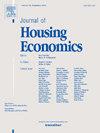Effect of conventional and unconventional monetary policy shocks on housing prices in Canada
Abstract
This paper investigates the relative importance and effect of conventional and unconventional Canadian monetary policy surprises on housing prices. Using a credible approach to identify structural monetary policy shocks in Canada and a comprehensive Bayesian VAR model to analyze their effects on financial and macroeconomic variables, we find that both conventional monetary policy and quantitative easing shocks have a significant and persistent effect on housing prices in Canada. However, the inflationary effect of a quantitative easing shock is more pronounced than that of an easing target monetary policy surprise. Specifically, the peak effect of a 25-basis point expansionary conventional monetary policy shock is a 2.30% increase in real housing prices while a comparable quantitative easing surprise leads to a peak of 4.56% increase in real housing prices. We conclude that expansionary monetary policy in various forms has had significant inflationary effects on Canadian housing prices. But quantitative easing surprises stand out as the most prominent contributory factor to the escalating Canadian real estate price. Quantitative easing impact consistently outweighs the effects of forward guidance and conventional monetary policy shocks.

 求助内容:
求助内容: 应助结果提醒方式:
应助结果提醒方式:


